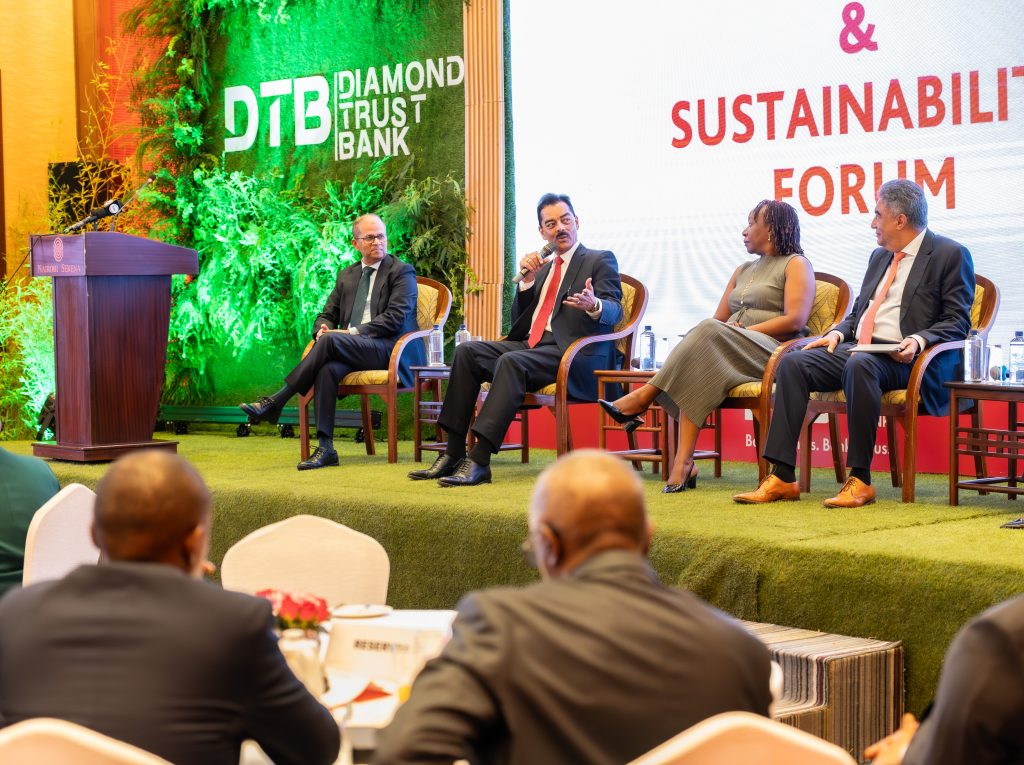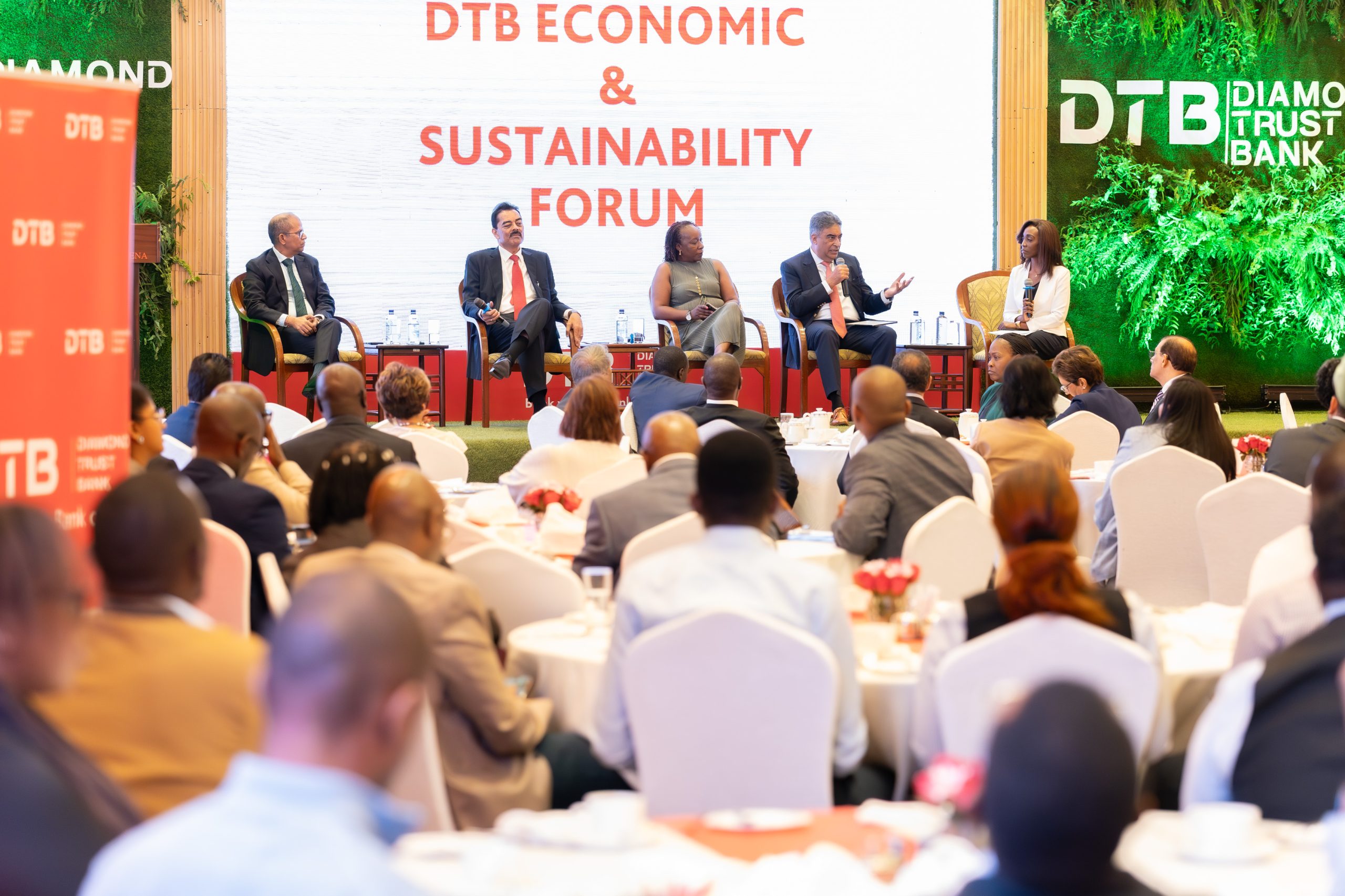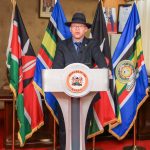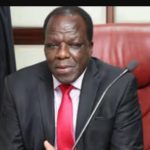5th DTB Economic and Sustainability Forum Highlights Growing SME Lending Amid Kenya’s Economic Recovery.
By Peace Muthoka.
Nairobi, October 15, 2025 — Small and medium-sized enterprises are set to benefit from renewed economic optimism as Diamond Trust Bank (DTB) reports a surge in SME lending, supported by a stronger economy and easing interest rates.
Speaking during the 5th DTB Economic and Sustainability Forum in Nairobi, the bank’s Chief Executive Officer, Murali Natarajan, praised the Government and the Central Bank of Kenya for stabilizing the shilling, reducing inflation, and lowering interest rates a move he said has revived business confidence across the country.
“I think the Government and the Central Bank of Kenya have done a fantastic job from what was in the middle of last year and what we have today,” said Natarajan. “There has been a transformative change in terms of interest rates coming down. Deposit rates are coming down, loan rates have come down and based on the data that I have seen on credit off-take, from negative three four months ago, credit off-take has moved into positive territory, which is very good for us.”
He said DTB is already seeing results, with SME lending picking up as more entrepreneurs seek credit. “DTB is focused on business banking, which is SME and micro-SMEs. While we continue to be strong on corporate lending, in the last 12 months, we have shifted gears in business banking and retail and we are expanding our team,” he said. “Overall, we are confident that barring any unforeseen situation, we should be able to double our balance sheet in between three to four years.”
Natarajan emphasized that banks remain open to financing businesses with solid management and sound ideas. “The banking sector supports businesses which have good ideas and are reasonably well managed. So if the ideas come and you find there is reasonable experience of the promoters, there is a good chance of succeeding. I don’t see how banks won’t support,” he said.
Trade and Industry Cabinet Secretary Lee Kinyanjui challenged banks to take a more active role in driving Kenya’s growth, noting that the country’s strong manufacturing base could unlock major opportunities under the Africa Continental Free Trade Area (AfCFTA).
“With the Africa Continental Free Trade Area, Kenya can use its strong manufacturing base to export goods to a potential 1.4 billion people across the continent,” said Kinyanjui. “In the past, we have been very good at helping nations during their liberations, but when they get their independence, we don’t move as fast to reap the economic benefits. Kenya has been in the forefront in the AfCFTA conversation, but the real move will come from the business people.”

He said with Kenya now heading COMESA, financial institutions must help businesses expand into new markets. “Sometimes, when we get these bilaterals with some diplomats, they ask me, ‘What can you sell?’ After I say coffee, tea and flowers, the rest I’m not too sure what to say in volumes,” he said. “If there is one area where we can unlock this country, it is the area of financing for growth.”
Kinyanjui also urged for political stability, saying it remains the biggest risk to Kenya’s economic progress. “If you remove the political risk, Kenya can play its rightful role. If we have the talent, the land, the weather, we have almost everything except the political risk,” he said.
Comparing Kenya’s potential to Thailand’s, Natarajan said the country could attract millions more tourists with better planning and promotion. “When I compare Thailand in terms of the landscape, the people and the culture, what is the advantage we have? Very service-oriented, nice English-speaking people, and we have a fair amount of infrastructure,” he said. “The question I have been asking myself for the past one year is: what can we do as a country to get, instead of three million visitors, 20, 30 million visitors? Could that make a big difference to our economy?”
Themed “Navigating the Shifting Economic Landscape: Strategies for Business Growth and Resilience,” this year’s forum brought together CEOs, policymakers, and economists to discuss ways of strengthening Kenya’s business ecosystem.
Bidco Africa CEO Vimal Shah urged Kenyans to “press the reset button” and take advantage of the nation’s wealth in human capital and energy. RETRAK CEO Wambui Mbarire called for stronger capacity building for SMEs, saying many small businesses struggle under heavy regulations and competition from large manufacturers.
“The largest market is informal, and perhaps we should begin by advising SMEs to meet their local markets’ needs,” said Mbarire. “The challenges of devolution in the first year are the same challenges we talk about now, 15 years later. We need to move devolution from 47 countries, because that’s how we see it, to 47 counties in one country.”
KEPSA Chairman Jaswinder Bedi highlighted the need to expand production and exports while addressing unemployment. “We need to improve our production capacity and grow our exports to fill the deficit. Our youth bulge is a problem and we have the social responsibility to solve it. We have a serious issue and a significant discussion but it’s not a simple fix,” he said.
Speakers agreed that Kenya’s economic momentum is building and that collaboration between banks, businesses, and policymakers will be vital to sustain growth and unlock the potential of small enterprises that power the country’s economy.








